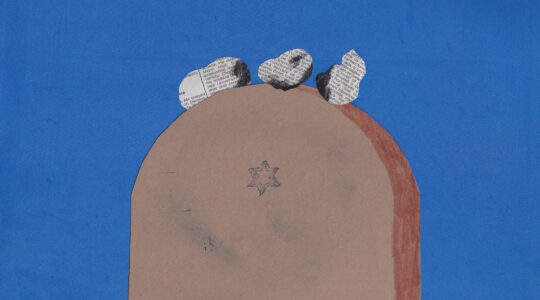Dealing successfully with challenges has ripple effects far beyond the individual. Overcoming adversity in the face of a disability is often a profound source of inspiration to others. One such example is a program in Israel that is paving the way for thousands with disabilities to move past traditional obstacles and proudly serve in the military. And, with the help of an inspirational military officer, the program is creating a more inclusive Israeli society and serves as a model to other nations.
Special in Uniform, a signature program of the Israel Defense Forces (IDF), was launched 20 years ago by a small group of senior officers, to integrate Israeli youth with disabilities—mental and physical—into the IDF to serve alongside their fellow countrymen and women. Today, a proud partner of Jewish National Fund, Special in Uniform is working toward its goal to “ensure that the army is a place for everyone.” A distinctive aspect of SIU is that it pairs the soldiers with positions, units, and commanders to ensure that their service is meaningful and effective. This includes identifying appropriate positions for each soldier so that they can excel in their tasks and have a sense of belonging. Throughout their service, Special in Uniform soldiers receive life-skill lessons and are provided with career assistance and placement to ensure a smoother transition into civilian life.
The inspirational military officer is IDF Major Riki Golan, 38, she is a volunteer with Special in Uniform, who has seen individuals with all kinds of disabilities come and serve in the IDF.
Golan knows all too well the need for this program. Born premature at 27 weeks, and one of a set of triplets, Golan’s brain was deprived of oxygen at birth. As a result, she developed cerebral palsy, a disability marked by impaired muscle coordination. Unlike the rest of her siblings, Golan didn’t hit typical developmental milestones, and one doctor even told her parents that she would never walk. But, despite it all and with the perseverance of her parents who sought every which way to get her the medial help needed, Golan not only conquered the obstacles, she has served in the IDF for the past 20 years—as a ranking and highly respected officer!
Joining the military was always the goal for Golan, who comes from a long line of military veterans. Her father (z’’l) was a four-star brigadier general who served in the Six-Day War and the Yom Kippur War, and received the nation’s highest honor bestowed upon soldiers. “I was crawling around on tanks before I even started walking,” Golan remarked while showing a picture of her father.
Doctors told her parents that she would never walk, but Golan’s mother searched the world over for help for her daughter, and finally located a surgeon in Israel willing to treat her. After many surgeries, she gained use of her legs and began walking. She attended a regular school until her graduation, integrating with her peers despite the inherent difficulties.
At age 18, Golan knew exactly what to do—she, along with the rest of her peers, went to join the army. She never let her physical disability diminish her love for her country and her desire to serve in the IDF. Rather, it lit a fire of determination.
But, back then without an organization like Special in Uniform to assist youth with disabilities, Golan faced difficulty with recruitment. “As part of the process, all soldiers must go before a medical committee, and my experience there was traumatic,” she said, and was immediately given an exemption from military service. Unsatisfied, Golan asked if she could volunteer, but the committee’s response was an equally heartbreaking, “No.”
Golan left the recruitment center feeling defeated and frustrated. “I felt like I wasn’t good enough for them, but I refused to give up. I decided to persist until I was enlisted. Eventually I was accepted into the army.”
Determination is a highly valued virtue by Golan. It is a quality that has been deeply ingrained in her by her parents since childhood. Her mother never gave up trying to find a way to help her walk, and her father, her biggest influence, constantly encouraged and pushed her forward to achieve her dreams. “My father would tell me, ‘Your legs may not work well, but your head is good,’ meaning that I should always search for what can be done and to build from there.”
Young, stubborn, and ready to do anything to succeed, Golan rose through the ranks and was accepted into the IDF’s officer training course. “This was very challenging—the course was held on the fourth floor of an army base only accessible by stairs. I was repeatedly asked if I was sure if I could do it, and each day I climbed those stairs up to the fourth floor, no matter what,” Golan told me with pride.
Golan is also unique from another aspect. Her status as a high-ranking IDF officer with a physical disability paved the way for her to become the spokeswoman for Special in Uniform. “Not everyone has an encouraging dad like I did,” Golan said, “but with an organization like Special in Uniform, these kids have someone to advocate for them.”
If an officer is wary of accepting a soldier with a disability into their unit, Golan steps in. “I am able to explain to the commanding officer that I know that it is not easy, but I’m also an officer and I understand how valuable these soldiers can be.”
Like many in Special in Uniform, Golan is amazed to see the program’s deep and profound influence on the country’s perception of individuals with disabilities. “The IDF is the only army in the world that recruits people with disabilities. This acceptance has an impact on Israeli society as a whole.”
Yossi Kahana, a native-born Israeli, is the director of Jewish National Fund’s Task Force on Disabilities, an umbrella and coordinating body for the various JNF programs and partners for people with disabilities in Israel.
The New York Jewish Week brings you the stories behind the headlines, keeping you connected to Jewish life in New York. Help sustain the reporting you trust by donating today.




